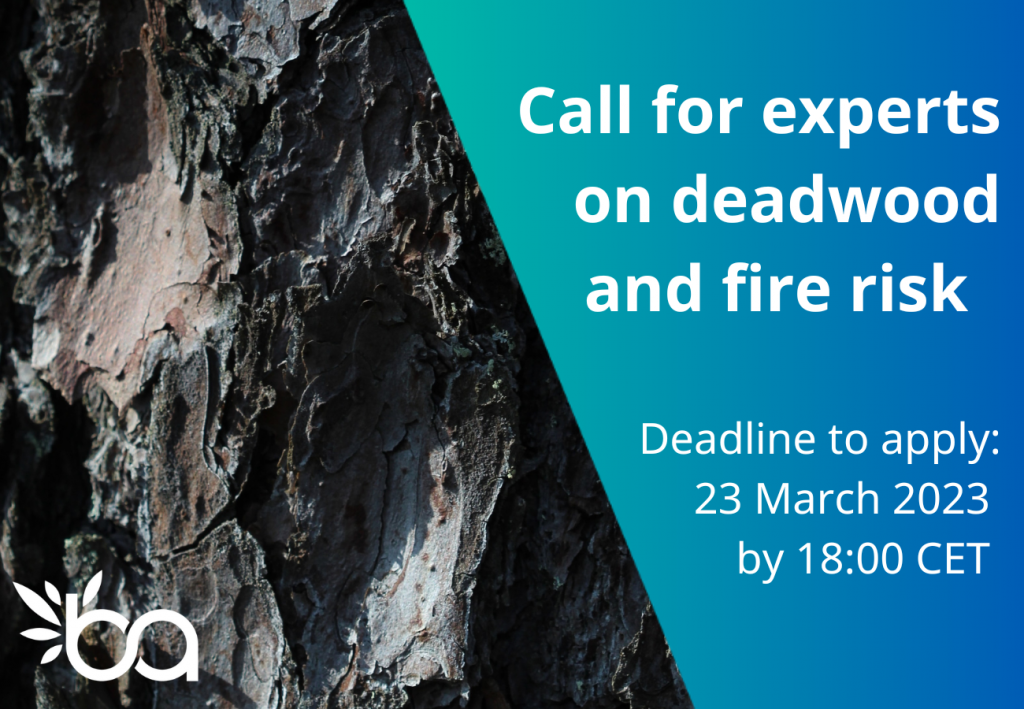In light of the current policy discussions in both the Nature Restoration law and EU Forest policy, the Directorate-General for Environment of the European Commission has put a request to explore the link between deadwood and fire risk in Europe. Deadwood is considered as a biodiversity indicator in forest ecosystems, but it is not yet well established how accumulation of deadwood is connected to risks of fire and to what degree this risk is dependent on the type of forest ecosystem and geographical region.
BioAgora is inviting experts to join a fast request expert group to understand the state of knowledge regarding a) the links between deadwood characteristics (volume, size, decomposition stages etc) and fire risk in the different biogeographic regions of Europe and b) the identification of forest management approaches for reconciling the biodiversity objectives of deadwood management with forest fire risk management/prevention.
The expert group will be working to a tight deadline (within a few weeks) and will be responsible for the writing of a short brief (3-4 pages) synthesising existing peer-reviewed literature that will be integrated to the briefings to DG ENV’s Head of Unit ahead of briefings with Member States on the Nature Restoration law and EU Forest policy. The expert group is expected to comprise a small group writing the brief, supported by a wider group of experts providing references, information and feedback on specific parts of the brief. The fast request is a process being piloted by BioAgora, and may be followed up by a longer knowledge synthesis Eklipse process, depending on the needs of the requester.
If you are an expert in deadwood, forest management and/or fire risk and would like to contribute directly to a policy‐relevant process in your field of expertise, then please let us know by emailing Juliette Young and Marie Vandewalle. Please let us know in your email what expertise you could bring (e.g. forest types, geographic area, past work on deadwood) and what role you would like to take in the expert group (taking a lead on writing, contributing to writing, providing information, reviewing, etc).
Important dates and information
- Interested experts should let us know by 18.00 CET on Thursday 23rd March 2023 by emailing juliette.young@inrae.fr and marie.vandewalle@ufz.de.
- We will plan to hold a meeting with the experts and the requester on Friday 24th afternoon at 15.00 CET – please keep this free if possible.
- Participation in this expert working group will require approximately 20% of your time during the period.
- Support will be provided by BioAgora, e.g. through the quick scoping of literature, and through organisation of regular online meetings, including a kick-off meeting to present and clarify the request, as well as weekly update meetings. In the framework of the BioAgora project and the piloting of the fast request process, a follow-up process after the delivery of the output will be evaluating the impact of the work done by the group of experts and communicated back to them.
